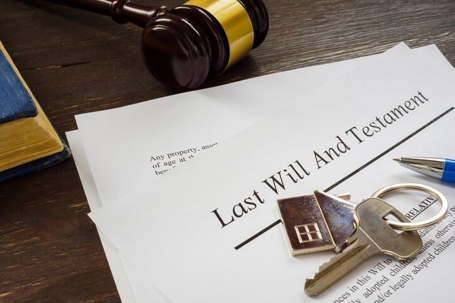What is probate? What do you need to know about it? Upon your death, the probate process ensures that all your estate debts are paid and that your beneficiaries receive your assets. If you don’t come from a legal background, understanding some critical aspects of probate can help you make informed estate planning decisions.
At Schneider, Garrastegui & Fedele PLLC, we are probate lawyers with extensive experience in elder law and estate planning. We can help you formulate an estate strategy that fits your financial situation and wishes. We also assist individuals, such as executors and family members, in dealing with probate matters to ensure that the process runs smoothly.
In this article, our probate attorneys answer frequently asked questions about the probate process in Long Island and in New York State.
What Is Probate?
Probate is a court process that your executor undertakes after your death to:
- Present your will to the court
- Seek approval of your will’s terms by a judge
- Pay off your debts
- Distribute your assets and belongings to your beneficiaries
Probate and Taxes: Should I Retain a Probate Lawyer Near Me?
Under New York law, federal and state estate taxes become payable when someone dies. If someone named you the executor of their will, consider retaining a New York probate lawyer to collect all information and file estate tax returns, if required. A lawyer familiar with the tax code will make the proper deductions to minimize the estate’s tax obligation.
Is It Necessary or Mandatory to Probate a Will?
Probate can be costly and time-intensive for everyone involved in the process.
For example, creditors in New York have seven months to file a claim against the estate, after an executor is appointed, which means an estate can take months to complete. The probate process of high-value and complex estates can take longer than a year.
Like most other states, New York offers small estate administration. With small estate administration, the Surrogate’s Court doesn’t oversee each step of probate, allowing the process to go quicker. Whether an estate qualifies for this process depends on the estate’s property value and asset types.
How Much Does an Estate Have to Be Worth to Go to Probate?
In 2019, the State of New York approved an amendment to the Surrogate Court Procedure Act, increasing the threshold for small estates from $30,000 to $50,000. An estate worth less than $50,000 qualifies for the simplified Voluntary Administration proceeding, even if the decedent has a will. However, real estate administration cannot occur under the Voluntary Administration proceeding.
In some cases, an estate with a personal property value exceeding $50,000 might qualify for small estate administration. A surviving spouse or child under 21 can receive exempt property from the estate, which doesn’t contribute to the threshold amount.
How Do You Know If You Have to Go to Probate for an Estate?
Generally speaking, a deceased’s estate doesn’t have to go through the formal probate proceeding if:
- The estate’s value is below the $50,000 threshold
- The estate does not contain any probate assets
Probate assets are property under the deceased’s sole ownership without a beneficiary designation. Examples of probate assets may include real estate, vehicles, cash, individual bank accounts, antiques, jewelry, and art.
On the other hand, non-probate assets include:
- Trust assets
- IRAs, Roth IRAs, 401(k)s, and other retirement accounts with beneficiary designations
- Real estate under joint ownership
- Life insurance policies with beneficiary designations
- Checking, savings, and brokerage accounts under joint ownership
- Bank or financial accounts containing a Transfer on Death or Payable on Death clause
Contact our probate attorneys to find out if your estate contains probate assets.
How to Avoid Probate
Avoiding probate is possible in New York but requires extensive planning.
Creating a revocable living trust that holds your assets is an effective way to avoid probate. This type of trust lets you manage your assets until your death, at which point your beneficiaries take ownership of the assets. This process doesn’t require probate.
Assets under joint ownership do not need to go through probate. For example, if you and your spouse are joint owners of a house, your spouse will automatically become the sole owner of the property when you die.
Another way to avoid probate is through a beneficiary designation clause. For example, through a Payable on Death arrangement, your death can trigger the immediate transfer of bank accounts, savings bonds, security deposits, or other assets to a beneficiary, bypassing the probate process.
Schneider, Garrastegui & Fedele PLLC: Experienced Probate Attorneys You Can Trust
At Schneider, Garrastegui & Fedele PLLC, of Melville, NY, we have provided clients with effective estate planning solutions for more than 30 years. Our knowledgeable attorneys will help you protect your assets so that you can contribute to your family’s financial well-being.
Call us today at (631) 519-9831 or complete our online form to schedule a consultation.
Copyright © 2022. SCHNEIDER, GARRASTEGUI & FEDELE PLLC. All rights reserved.
The information in this blog post (“post”) is provided for general informational purposes only and may not reflect the current law in your jurisdiction. No information in this post should be construed as legal advice from the individual author or the law firm, nor is it intended to be a substitute for legal counsel on any subject matter. No reader of this post should act or refrain from acting based on any information included in or accessible through this post without seeking the appropriate legal or other professional advice on the particular facts and circumstances at issue from a lawyer licensed in the recipient’s state, country or other appropriate licensing jurisdiction.
SCHNEIDER, GARRASTEGUI & FEDELE PLLC
135 Pinelawn Rd #250s
Melville, NY 11747
(631) 519-9831
https://isvglaw.com

